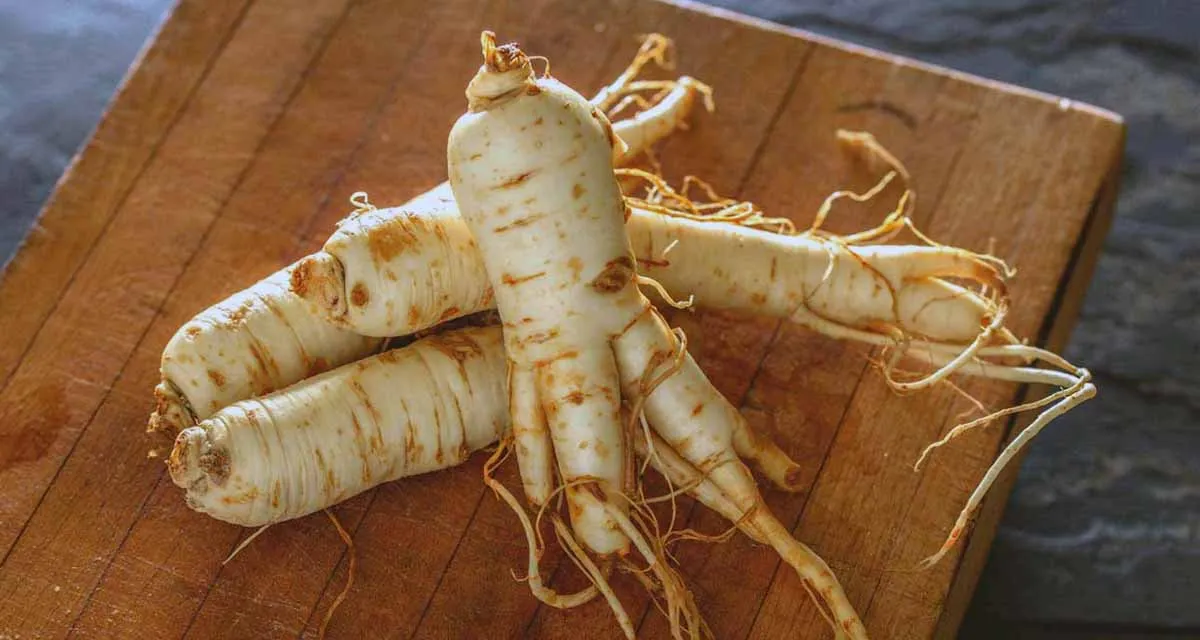Many people around the world live with conditions that affect the liver, such as cirrhosis, non-alcoholic fatty liver disease, alcoholic liver disease, liver cancer, liver failure, and hepatitis. Each year, liver disease is responsible for nearly 2 million deaths worldwide.
Risk factors for liver disease include excessive alcohol consumption, high blood sugar levels, obesity, high blood pressure, viruses, elevated triglyceride and cholesterol levels and a few more causes.
Liver disease is treated in several forms, including medications, nutritional therapy, immunotherapy, lifestyle change, surgical resection, and even liver transplantation in the worst situations.
In addition to the usual treatments, many people resort to alternative therapies, including herbal supplements, hoping to improve and protect the health of your liver. In fact, about 65% of people in the United States and Europe with liver disease take herbal supplements.
In this article we talk about some foods and medicinal herbs that have been shown to improve liver health.
Table of Contents
Best Foods for Liver Health (Liver Protectors)
1. Ginger
Ginger root is a popular culinary ingredient and is also commonly used as a medicinal treatment for many health conditions, including liver disease.
Ginger root contains powerful compounds, including gingerols and shogaols, which help inhibit inflammation and protect against cell damage, which can help maintain liver health. In addition, ginger can help protect your liver against toxins like alcohol.
Ginger is generally considered safe, even for those with liver conditions. However, you should always consult with your healthcare provider before supplementing with ginger products in high doses.
2. Green tea
Although not technically an herb, green tea and its main polyphenolic compound, epigallocatechin-3-gallate (EGCG), is included in literature reviews that focus on remedies based on botanical extracts against liver conditions.
Some scientific studies have shown that supplementation with green tea extract can help treat people with liver disease.
Supplementation with 500 mg green tea extract per day for 90 days significantly reduced markers of liver damage ALT and aspartate aminotransferase (AST). On the other side, although the placebo group also noticed a reduction in AST and ALT levels, they were not significant.
Sse has been shown that green tea intake protects against various liver conditions, such as liver cancer, hepatitis, cirrhosis, fatty liver (hepatic steatosis), and chronic liver disease.
While drinking green tea is considered safe for most people, in rare cases, green tea extract supplements have been linked to acute liver injury.

3. Milk thistle (silmarin)
Milk thistle extract is a group of compounds extracted from the milk thistle seeds (Silybum marianum) which include silybin, silicristin, and silidianin. This compound has been used for more than 2 centuries to treat liver and bile duct conditions, and scientific research shows that it may have liver-protective properties (trusted source).
It has been suggested that milk thistle possesses antioxidant effects and may help promote liver cell regeneration, reduce inflammation, and benefit people with liver disease. However, more conclusions are needed to respect its functionalities.
For example, some studies have shown that taking a milk thistle supplement can help protect against progression of liver disease, prolong life in people with alcoholic cirrhosis and improve overall quality of life in people with liver disease. On the other hand, other studies indicate that sea thistleiano is no more effective than placebo treatments, highlighting the need for further research.
Regardless of all this, milk thistle is considered safe and has not been associated with adverse side effects, even when used in high doses.
4. Garlic
Although garlic is botanically considered a vegetable, it is a popular component of many herbal remedies. It’s packed with potent antioxidant and anti-inflammatory plant compounds, such as allicin, alliin and ajoene, which can help maintain liver health.
A 2020 study in 98 people with NAFLD found that those who took 800 mg of garlic powder per day for 15 weeks experienced significant reductions in levels of ALT, AST, LDL (bad) cholesterol, and triglycerides, compared to a placebo group. In addition, 51% of participants in the garlic group showed improvements in the severity of fat accumulation in the liver, compared to only 16% of the control group.
Another study in more than 24,000 adults found that men who consumed raw garlic more than 7 times a week had up to a 29% lower risk of developing fatty liver disease. Although raw garlic intake was inversely associated with NAFLD in men, this association was not observed in women (source of information).
Although raw garlic is generally considered safe, concentrated garlic supplements can induce liver damage in some people.
5. Turmeric
Turmeric and its main active component, the curcumin, have been linked to a variety of impressive health benefits.
It is well documented that turmeric has powerful anti-inflammatory, antioxidant and anti-cancer properties, which makes this herb a popular choice for those suffering from liver disease.
A study in people with NAFLD showed that daily treatment with 500 mg of a curcumin product for 8 weeks significantly reduced liver fat content and AST and ALT levels, compared to a placebo group.
Piperine is a compound found in black pepper that improves the absorption of curcumin. Curcumin treatment was also observed to significantly improve the severity of NAFLD compared to the placebo group.
Supplementing with turmeric and curcumin is generally considered safe. However, some cases of acute liver damage have been reported. Still, it is unclear whether these cases were due to contamination of curcumin products or the products themselves.

6. Ginseng Extract
Ginseng is a very popular plant-based supplement recognized for its anti-inflammatory properties. Several studies carried out in the laboratory and on animals have shown that ginseng has antioxidant effects and can help us from liver injuries caused by viruses, toxins and alcohol. In addition, it can stimulate the regeneration of liver cells after surgery (source of information).
Moreover, some human studies have shown that ginseng treatment can improve liver function and reduce inflammation in people with liver disease and liver dysfunction. In several studies, the levels of gamma-glutamyl transferase (GGT), a marker of liver damage, were significantly reduced versus placebo.
Although these results are promising, more research is needed to develop the ginseng’s effects as a liver protector.
When used alone, ginseng is thought to be relatively safe for liver health. However, ginseng has the potential to react with medications, which can lead to liver damage and other potentially dangerous side effects.
7. Licorice
Licorice root has been shown to have effects anti-inflammatory, antiviral and liver protectors in scientific studies. The main active component of licorice root is the saponin glycyrrhizin compound, which is commonly used in traditional Chinese and Japanese medicine to treat many ailments, including liver disease (source of information).
Some studies have shown that treatment with licorice extract can benefit those with certain liver conditions.
A study in 66 people with fatty liver disease found that supplementation with 2 grams of licorice root extract per day for 2 months significantly reduced ALT and AST, compared to a placebo treatment.
Although these findings are promising, more research is needed.
Some people are more sensitive to licorice and chronic use of licorice products can lead to dangerous side effects, such as high blood pressure and low blood potassium levels.
Other herbs with medicinal plants and liver health
8. Ginkgo biloba
Ginkgo biloba is a popular herbal supplement that has been linked to better liver health. For example, a rodent study showed that ginkgo biloba injections reduced liver fibrosis and improved liver function.
Although Ginkgo biloba has been associated with mild adverse side effects, it has not been specifically linked to liver injury.
9. Astragalus
Astragalus is an edible herb commonly used in the traditional Chinese medicine. It is loaded with medicinal compounds, including saponins, isoflavonoids and polysaccharides, which have powerful therapeutic properties.
It is generally considered safe and has not been associated with liver injury. However, it can interact with certain medications. Studies in rodents indicate that astragalus may help protect against fibrosis and fatty liver induced by a high-fat diet when used alone or in combination with other herbs.
10. Danshen
Danshen is a compound that is commonly used in traditional Chinese medicine. They are the dried roots of grass Salvia miltiorrhiza Bunge . Human and animal studies have shown that danshen can have positive effects on liver health.
Animal studies indicate that danshen may help protect against alcohol-related liver disease and promote liver tissue regeneration, while some human studies suggest that danshen injections may help treat liver fibrosis when used in conjunction with other herbal remedies.
Precautions with herbal liver products
Although some herbal treatments can help treat or prevent liver conditions, it is critical that anyone interested in using herbal remedies for liver health speak with a qualified health care provider first.
This is because many herbal treatments have been shown to be ttoxic to the liver and can be dangerous to take, especially for those suffering from liver disease or other medical conditions.
In fact, herbal medicines have been associated with liver damage and even death. Both singular herbs and herbal blends have the potential to cause serious liver damage.
In addition, herbal supplements can be contaminated with heavy metals, pesticides, pharmaceuticals, and bacteria that can damage your liver.
In addition, many herbs can interact with common medications, which can cause liver damage and even death. Although certain herbs may be safe to use, many others are not, so you should always check with your healthcare provider before taking any herbal supplement.
Bibliography consulted
- Murray MT. Glycyrrhiza glabra (Licorice). Textbook of Natural Medicine. 2020;641-647.e3. doi:10.1016/B978-0-323-43044-9.00085-6.
- Park TY, Hong M, Sung H, Kim S, Suk KT. Effect of Korean Red Ginseng in chronic liver disease. J Ginseng Res. 2017;41(4):450-455. doi:10.1016/j.jgr.2016.11.004.
- Zhang S, Gu Y, Wang L, Zhang Q, Liu L, Lu M, Meng G, Yao Z, Wu H, Xia Y, Bao X, Wang H, Shi H, Sun S, Wang X, Zhou M, Jia Q, Song K, Xiang H, Niu K. Association between dietary raw garlic intake and newly diagnosed nonalcoholic fatty liver disease: a population-based study. Eur J Endocrinol. 2019 Dec;181(6):591-602. doi: 10.1530/EJE-19-0179. PMID: 31557727.
- PDQ Integrative, Alternative, and Complementary Therapies Editorial Board. Milk Thistle (PDQ®): Health Professional Version. 2021 Jun 23. In: PDQ Cancer Information Summaries [Internet]. Bethesda (MD): National Cancer Institute (US); 2002-. Available from: https://www.ncbi.nlm.nih.gov/books/NBK65780/.
